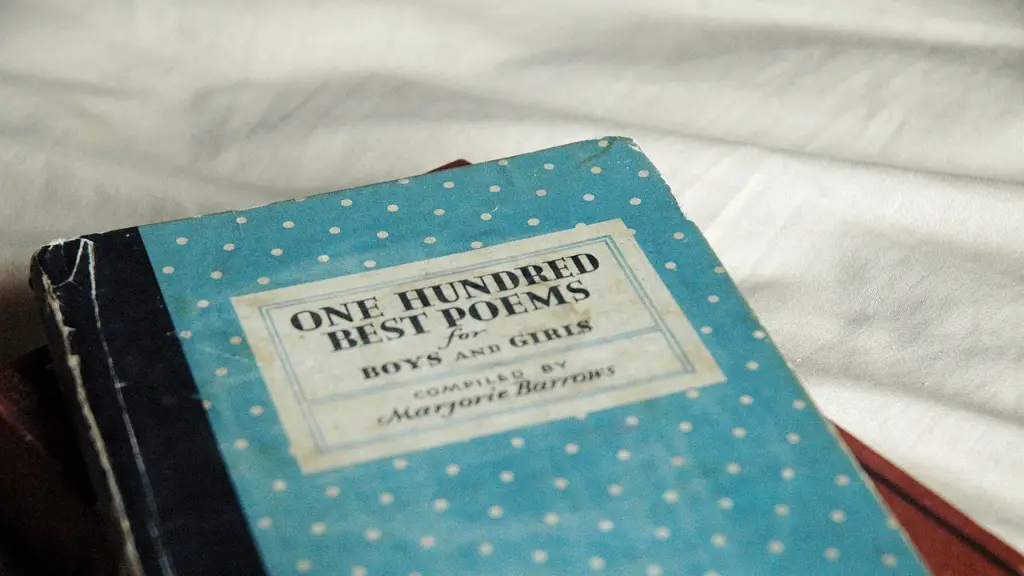What Year did Maya Angelou Write Still I Rise?
Maya Angelou was a prolific poet and writer who penned many acclaimed and popular works. One of her most powerful works, the poem ‘Still I Rise’, was written in 1978 and is considered one of her most well-known compositions. The poem, written during a period of great personal transformation, is a testament to the power of the human spirit, encouraging readers to embrace themselves with resilience and dignity, no matter how hard the journey.
The poem serves as a source of strength and a battle cry for African-Americans, women and all the historically marginalized, who have faced decades of discrimination, oppression and injustice. Angelou’s words famously call out to those of ‘fearful height’: ‘You may write me down in history / With your bitter, twisted lies, / You may trod me in the very dirt / But still, like dust, I’ll rise’.
Through her use of uplifting, inspiring language, a recurring theme in many of her works, Angelou speaks to the endurance of the human spirit. Even in the face of pain, suffering and injustice, the steadfastness of the soul endures – it will not be crushed, it will keep insisting that it may be written down, but it will always rise. This sentiment is embodied in the poem’s memorable title and concluding lines: ‘Out of the huts of history’s shame / I rise / Up from a past that’s rooted in pain / I rise / I’m a black ocean, leaping and wide, / Welling and swelling I bear in the tide./ Leaving behind nights of terror and fear / I rise / Into a daybreak that’s wond’rously clear/ I rise.’
The poem’s essence of joy and hope as a means of empowerment has made it an anthem of sorts, celebrated by people of all faiths and colours. Indeed, it inspires anyone who has ever suffered injustice, inviting them to rise up and face life with courage and pride. Angelou’s poem remains an enduring work of literature, with many versions of the poem available in print, audio and video form.
Impact of ‘Still I Rise’
Since its inception in 1978, ‘Still I Rise’ has had a tremendous effect on readers around the world. It has become a powerful call to action, urging people to push beyond the boundaries of oppression and strive for greater self-acceptance. Angelou’s stirring words encourage people to thank the hard times for preparing them for a moment of triumph.
“Still I Rise” serves as a reminder that courage and perseverance can move mountains. The poem celebrates the unwavering human will to take control of one’s destiny and follow it freely, no matter who tries to stop it. In her poignant words, Angelou paints an image of hope, fortitude and resilience that is sure to fill anyone with a sense of strength; a strength to conquer whatever threaten to bring them down.
The poem speaks volumes as to the state of human suffering at the time of its making, as well as its universal relevance today. Its message is one that can serve everyone, regardless of race, gender and social standing; a message of hope, determination and courage.
The poem has been cited by many esteemed figures, among them the 44th President of the United States, Barack Obama, and the beloved civil rights leader Reverend Martin Luther King Jr.. It is an example of Angelou’s amazing artistic craft and unparalleled ability to capture the essence of human experience in vivid and poignant words.
Reception and Legacy of ‘Still I Rise’
The poem continues to be praised and embraced by people of all walks of life. Angelou’s words have been set to music, have joined the ranks of high school set texts, and have been featured in TV and movies such as The Oprah Winfrey Show and The Help. It has inspired works of literature, speech and even street art.
In 2020, the diversity and inclusion organisation Blacks in Tech celebrated Angelou’s poem in a stirring video campaign. The project, released under the title, “Still We Rise,” featured prominent members of the African-American tech community honouring the poem. The video served to show how the poem’s inspiration would “continue to help shape and move Black tech workers and their communities forward, even in the face of adversity.”
The poem continues to be performed and celebrated the world over, and its legacy remains an inspiration to all those facing discrimination, struggling to rise and make their dreams come true. It is a tribute to Angelou’s ability to capture the beauty and strength of the human spirit in her words.
Themes of ‘Still I Rise’
The poem captures the ongoing struggle for African-American liberation from the shackles of racism, sexism and other forms of discrimination. Angelou’s words are an anthem for emancipation, offering reprieve from the tensions and difficulties of life. Against the backdrop of oppression and injustice, Angelou’s words offer a ray of hope, showing that freedom and love will prevail. “My soul be my pilot,” she cries. “On my face I can’t hide/ The track of a tear I have cried/I’m gonna face the rising sun/Go where my hopes can find some understanding.”
Another main theme is the acknowledgement of the importance of self-love and self-acceptance. Through her words, Angelou encourages readers to embrace their strength, their resilience and the sheer power of their presence. “In the morning gonna rise,” she writes. “Bringing with me all that I need/In the good gravity of love.” The poem communicates that oppression can never extinguish a person’s essence of love and perseverance. The sun will keep rising and its light will never be extinguished.
The poem gives readers a sense of liberation, emphasising the strength of African-Americans and inviting readers to live a life of pride, joy and courage. “It’s in the reach of my arms,” Angelou says, “The span of my hips,/The stride of my steps,/The curl of my lips./I’m a woman […]/I rise!” Through her words, Angelou proves that even in the midst of suffering, one’s spirit will always survive and strive for joy and liberation. No matter the obstacles, it will continue its journey of resilience, dignity and pride.
The Meaning of ‘Still I Rise’
Overall, the poem “Still I Rise” conveys a message of power, hope, strength and resilience against adversity. It succinctly captures the African-American experience and shows that despite the harshness of life, African-Americans will never be beaten down. They will always have the courage to fight for their own emancipation and protection. In “Still I Rise”, Angelou conveys a powerful message of hope, courage and pride, with everlasting words that will live on forever.
The poem reaches out to the historically marginalised and gives them the chance to rise up, whether they consider themselves victims or survivors. In its words, Angelou serves as a reminder that courage and resilience can move mountains. Through her poem, she proves that anyone, no matter how broken and bruised, can be empowered, reassured and able to confront any challenge. In her words, Angelou shows that no matter what, one’s spirit will always continue to strive for justice and joy.
Message of ‘Still I Rise’
Above all, “Still I Rise” serves as a reminder that people should never be defined by the injustice perpetrated against them. It is an anthem for African-Americans and anyone who has ever been met with discrimination, encouraging them to summon the courage, pride and perseverance to rise in the face of oppression. The poem serves as a call to action, urging people to thank the hard times for preparing them for a moment of triumph, and to not to be intimidated by the obstacles that may come their way.
The poem’s unwavering message of hope and strength continues to be an inspiration and a reminder that peace and justice will one day come. It continues to uplift, empower and encourage people to wild heights of resilience. The poem is a heartfelt ode to empowerment, and its message of courage, hope, and determination will always live on.




